Teach your students about the characteristics of insulators and conductors with this set of science posters for the classroom.
What Is an Insulator?
An insulator is like a superhero shield for electricity. It’s a material that doesn’t let electricity go through it easily. Insulators act as a wall that keeps the electric power in one place and doesn’t let it escape or cause any trouble!
Let’s take a look at some common insulators that you may see in your day-to-day life!
- Rubber Gloves – When you wear rubber gloves, they keep you safe from electricity, like when you’re using electrical tools.
- Plastic – Things like plastic toys, water bottles and containers are insulators because they don’t let electricity pass through them.
- Wood – The wooden handle of a spoon or a baseball bat is an insulator. It keeps you from getting shocked when you touch it.
- Glass – Windows and glass bottles are insulators because they don’t allow electricity to flow through them easily.
- Air – Even the air around us can be an insulator. That’s why we don’t get shocked just by being near electrical devices.
These insulators help keep us safe from electricity and make sure it goes where we want it to go, like in our appliances or toys, without causing any harm to us.
What Is a Conductor?
A conductor is a material that loves to let electricity flow through it. It helps electricity travel from one place to another easily, making it useful for things like turning on the lights and making our devices work.
Check out some of the conductors below to help you better understand these materials!
- Metal Wires – Materials like copper, aluminum, and silver are great conductors. They let electricity flow through them easily, like a fast and smooth slide.
- Coins – Coins made of metal, like pennies or nickels, are conductors. That’s why they can sometimes make a battery-powered toy work if you touch them to both ends of a battery.
- Sea Water – Sea water is a good conductor of electricity because it contains salt, which has tiny particles called ions. These ions make it easy for electricity to flow through the water, just like a pathway, allowing it to conduct electricity well.
- Aluminum Foil – This common material often times found in your kitchen can be a conductor of electricity.
Display Facts About Insulators and Conductors With Our Poster Set!
Teach Starter has created an informative poster set for you to use in your science classroom when learning about insulators and conductors. Head on over to the green download button to access the quick-print PDF file or the editable Google Slides document. If selecting the Google Slides option, please note that you will first be prompted to make a copy of the resource to your personal drive before accessing it.
More Resources for Your Electricity Unit!
Don’t stop there! We’ve got more activities and resources that cut down on lesson planning time:
[resource:5017407] [resource:5016948] [resource:4817312]
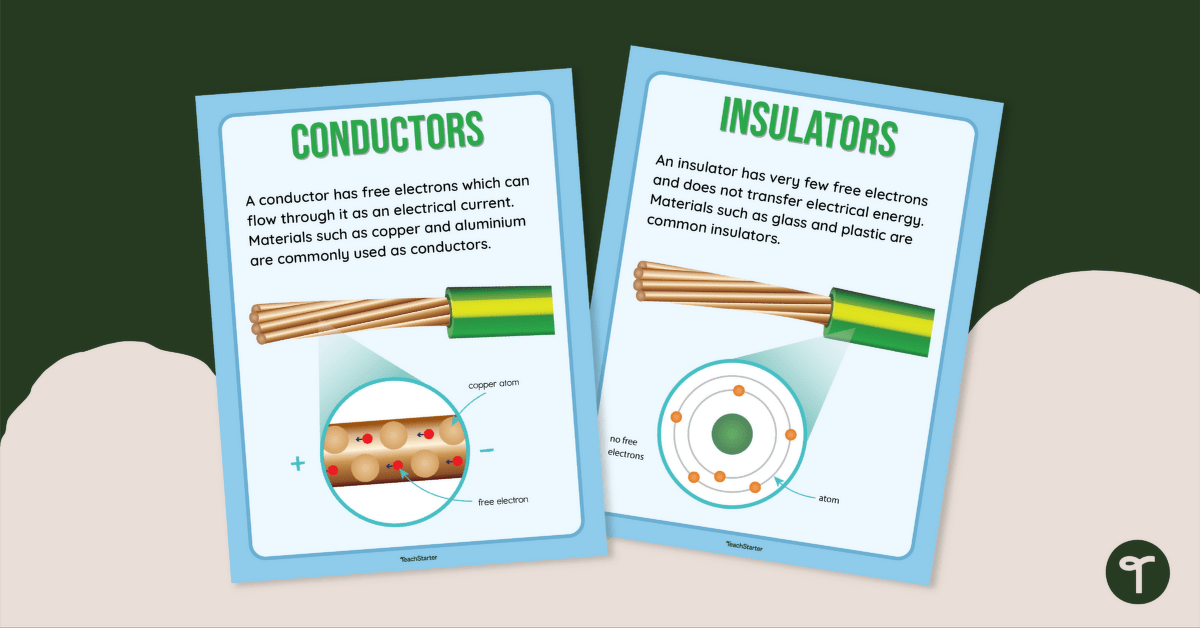

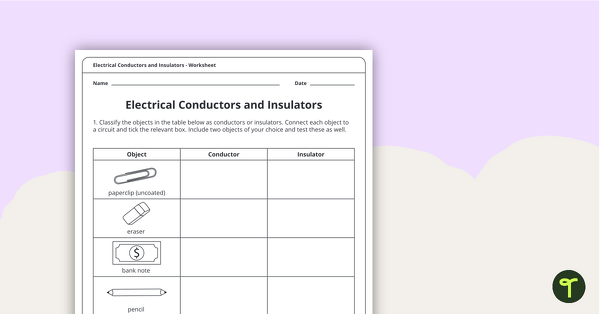
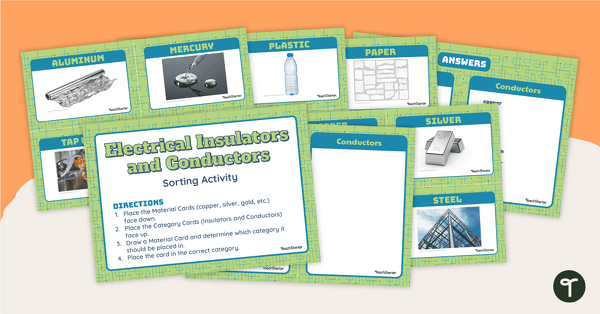
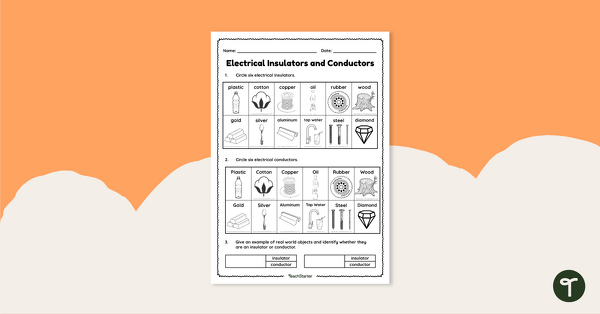
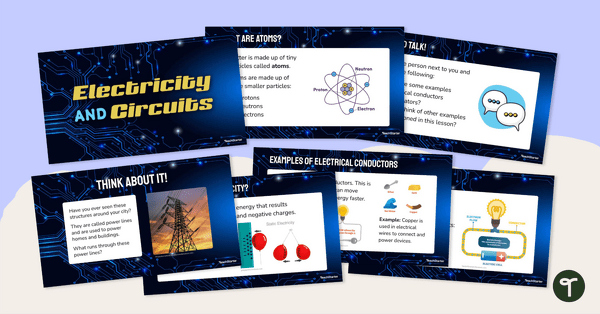
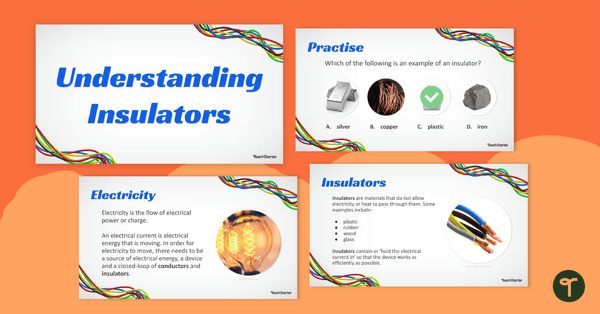
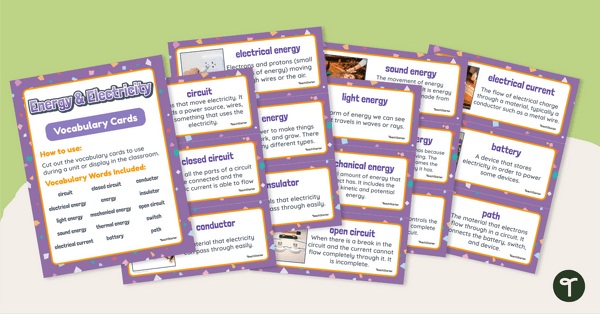
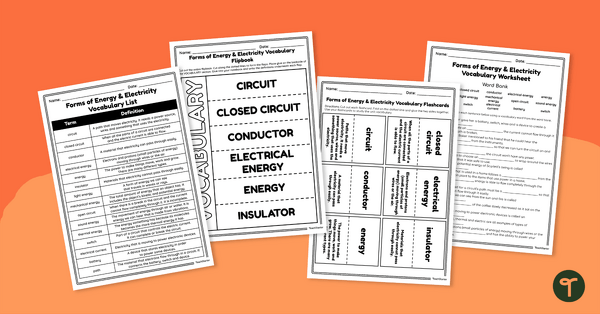
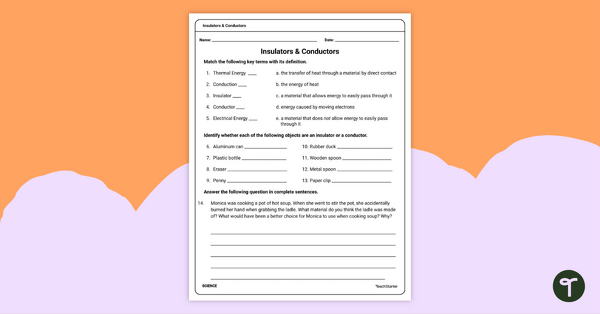
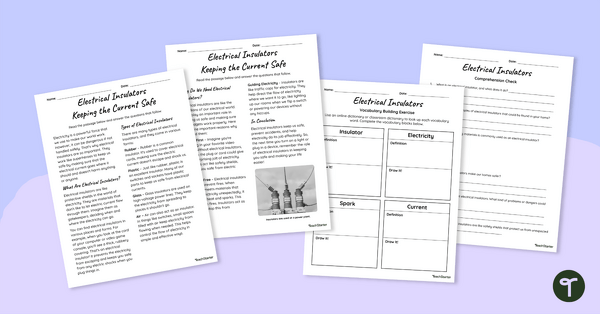
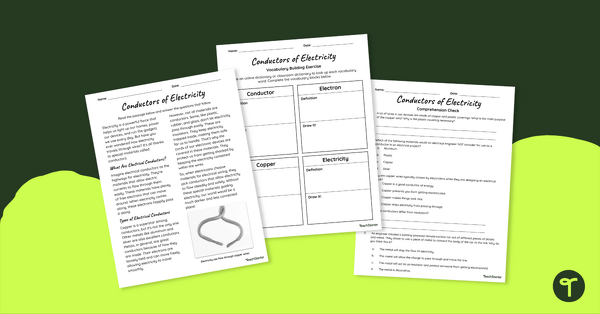
0 Comments
Write a review to help other teachers and parents like yourself. If you'd like to request a change to this resource, or report an error, select the corresponding tab above.